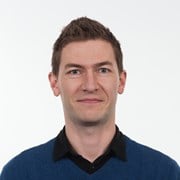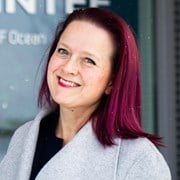SINTEF Ocean representatives participated in the first project meeting in Trondheim, Norway on January 17th-18th 2018 together with over 35 experts from academia, research institutes and industry from 18 different partners across Europe to discuss the first steps to develop innovative technologies for sustainable marine harvest.
With an increasing pressure on marine resource extraction mounting with resultant calls for sustainability in the sector, the Smartfish H2020 project aims to develop, test and promote a suite of high-tech systems that will optimize resource efficiency, improve automatic data collection, provide evidence of compliance with fishery regulations and reduce the ecological impact of the sector on the marine environment.
In 2017, the European Union approved the funding for this work with a total of just under six million Euros for the next four years. In the middle of January, the project participants met for the kick-off meeting in Trondheim, Norway). An interdisciplinary consortium with technology developers and instrument suppli-ers, fishing companies, research and fisheries management institutes and universities from six countries across Europe discussed during the 2-day conference the first steps and how the various sub-projects can cooperate as efficiently as possible.
For the duration of four years, from 2018-2021, the SMARTFISH H2020 project group will revolutionize the fishing industry sustainability output through technological innovations. The researchers and industry partners will exploit and further develop existing technological innovations in machine vision, camera technology, data processing, machine learning, artificial intelligence, big data analysis, smartphones/tablets, LED technology, acoustics and ROV technology. "The goal of the SMARTFISH H2020 project is to build ground breaking innovative systems that could actually revolutionize the sector in terms of monitoring, analyzing and improving processes in all facets of the European fishing sector", says Hanne Digre, Research Director at Department of Seafood Technology at SINTEF Ocean.
The developments will assist commercial fishers throughout Europe in making informed decisions during pre-catch, catch, and post-catch phases of the harvesting process. "The new innovative technologies we are developing in the project will improve catch efficiency for the fishers, as well as the fish compositions in the catches in fisheries across the EU", says Project Coordinator Bent Herrmann. "This again will lead to improved economic efficiency in the industry and for the individual fishers, all the while unintended fish mortality is reduced, so that there is less unnecessary fishing pressure and ecosystem damage" he contin-ues.
The tools are not only intended for the fishing industry alone though. The project will also provide new data for stock assessment from commercial fishing and improve the quality and quantity of data that comes from traditional assessment surveys. This provides the potential for more accurate assessment of fish stocks and allows for the assessment of stocks that are currently data-poor and therefore difficult to man-age. In addition, the project will access automatically collected catch data from the fisheries which will also allow for management regulations to gain higher compliance rates.
In the project, SINTEF Ocean have the role of both coordinators and researchers, and lead two work packages. Lars Tandle Kyllingstad leads a work package entitled "Development of Data Handling Systems", and John Reidar Mathiassen leads the work package on "Development of Automatic Catch Analysis Systems". SINTEF Ocean also has a leading role in the work package on "General Dissemination, Exploitation and Business Planning".
"Technologies that are innovative and have high impact in that they contribute to a sustainable harvest of marine resources is highly coveted by not only the industry, but also by management and private citizens, and SMARTFISH is part of the solution", summarizes Dr. Herrmann.
Please note:
This project has received funding from the European Union's Horizon 2020 research and innovation programme under grant agreement No 773521.




